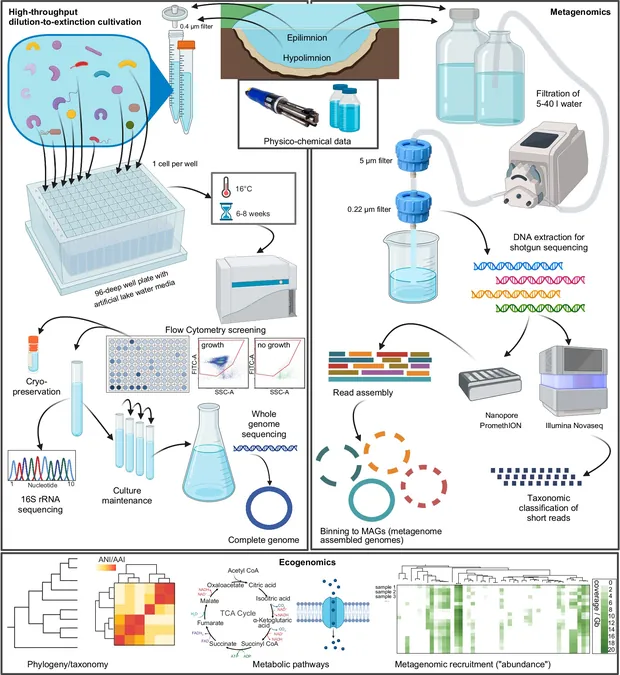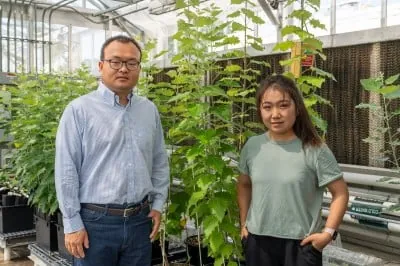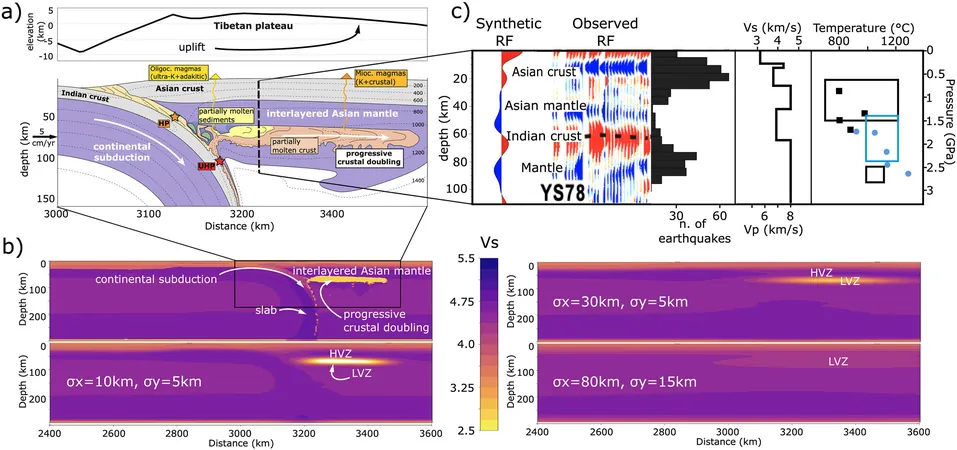
Revolutionizing Microbiology: Hundreds of Freshwater Microbes Cultivated for the First Time!
2025-09-04
Author: Jia
Unlocking the Secrets of Freshwater Microbes
In a groundbreaking achievement for microbiology, researchers have successfully cultivated hundreds of freshwater microbes that have long eluded scientists. Traditionally, cultivation efforts have focused on fast-growing organisms thriving in nutrient-rich environments, leaving the slow-growing oligotrophs—those adapted to low-nutrient conditions—largely uncharted.
An international team led by Michaela Salcher and Bettina Sonntag has just shattered these barriers. Their pioneering study has resulted in the cultivation of 627 pure strains from 72 genera across 14 lakes in Central Europe, marking a monumental step forward in our understanding of aquatic microbiomes.
A Game-Changing Cultivation Technique
Employing a high-throughput dilution-to-extinction method, the team designed custom growth media that closely mimics natural lake water, enabling the reluctant oligotrophs to flourish without being overshadowed by fast-growing competitors. This innovative approach produced a stunning diversity of cultured microbes, capturing 15 of the 30 most abundant freshwater bacterial genera and representing an astonishing 72% of genera typically detected in environmental samples.
Discovering the Undiscovered
Among the newly cultivated strains are many notorious ‘underrepresented’ bacterial taxa. These include well-known freshwater genera like Fontibacterium and Methylopumilus, which have remained elusive due to their slow growth rates and cryptic growth requirements.
Groundbreaking Genomic Discoveries
Metagenomic sequencing of lake samples unveiled that the cultivated strains closely resemble their environmental counterparts, validating their ecological significance. Additionally, whole-genome sequencing revealed two new families, nine new genera, and 41 novel species, uncovering insights into how these microbes adapt to freshwater environments.
Uncovering Ecological Adaptations
Key findings from the genomic analysis included: - **Genome Streamlining**: Smaller genome sizes prevalent in taxa like Fontibacterium, which are energetically efficient yet metabolically constrained. - **Light-Harvesting Abilities**: Certain strains employ intriguing mechanisms to harness light energy, showcasing their unique ecological strategies. - **Diverse Metabolic Functions**: The culture collection encompasses vital ecological roles, from nutrient cycling to vitamin synthesis, significantly impacting freshwater ecosystems.
The Future of Microbial Research Is Here!
This new strain collection not only fills a crucial gap in microbial research but also opens the door to controlled experiments addressing key ecological questions. How do these microbes interact within their ecosystems? What factors limit their growth? And how will they respond to environmental changes?
The genomes and new cultures are now publicly available, offering researchers invaluable resources to delve deeper into the essential roles of these microorganisms in carbon cycling, water quality, and ecosystem resilience. With this pioneering work, our understanding of freshwater microbiomes is set to transform!




 Brasil (PT)
Brasil (PT)
 Canada (EN)
Canada (EN)
 Chile (ES)
Chile (ES)
 Česko (CS)
Česko (CS)
 대한민국 (KO)
대한민국 (KO)
 España (ES)
España (ES)
 France (FR)
France (FR)
 Hong Kong (EN)
Hong Kong (EN)
 Italia (IT)
Italia (IT)
 日本 (JA)
日本 (JA)
 Magyarország (HU)
Magyarország (HU)
 Norge (NO)
Norge (NO)
 Polska (PL)
Polska (PL)
 Schweiz (DE)
Schweiz (DE)
 Singapore (EN)
Singapore (EN)
 Sverige (SV)
Sverige (SV)
 Suomi (FI)
Suomi (FI)
 Türkiye (TR)
Türkiye (TR)
 الإمارات العربية المتحدة (AR)
الإمارات العربية المتحدة (AR)